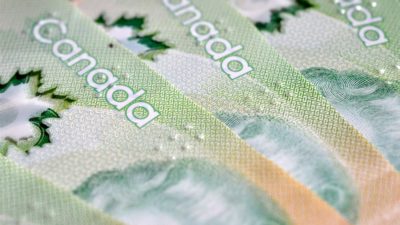The Tax-Free Savings Account (TFSA) is one of the best things Canadians enjoy in life. You can build wealth to secure your financial future. But who gets all the money in your TFSA when you’re gone?
Success holder
As a general rule, a beneficiary gets the money, and the successor holder gets the account. A spouse or common-law partner can be a successor holder who will take over your TFSA after you die.
Assuming you invest $10,000 in Sun Life (TSX:SLF)(NYSE:SLF) today, which pays a 3.54% dividend, your money would be worth $20,522.25 in 20 years, assuming no gains in the stock at all and a constant dividend. If you pass away, your spouse or common-law partner becomes the new owner of your TFSA. The account remains tax-exempt as well.
Sun Life, a globally known life insurer, is a core holding of conservative investors. It’s also one of the blue-chip stocks on the TSX. This $37.7 billion Canadian firm has been providing the insurance needs of people since 1871. Over time, Sun Life has grown to become a financial services company.
Aside from insurance, it now provides wealth and asset management solutions to both individuals and corporate clients worldwide. The company was able to survive the worst financial crises, not to mention the Great Recession. If you want to grow your money the safe way, Sun Life is a good option.
Since the TFSA does not form part of your estate, it goes directly to your spouse or common-law partner. A successor holder who is also a TFSA user has the option to merge the TFSAs or keep it separate.
Non-spousal beneficiary
An asset that usually finds its way into a retiree’s portfolio is Great-West Life (TSX:GWO). This leading franchise of Power Financial has a market capitalization of $31.54 billion. The company expects to grow by 8.8% in 2020 and potentially by an average of 7% in the next five years.
Great-West maintains its top-insurer status by reinvesting a portion of income in growth, paying down outstanding liabilities, and rewarding investors with dividends. The level of retirement and investment holding of its 13.1 million clients is $100 billion, while about $9.1 billion worth of benefits have been paid.
With its 4.87% dividend, your $10,000 today can grow to as much as $25,883 in 20 years, assuming no growth at all in the stock and that the dividend remains constant. If the investment is within your TFSA, both the principal and dividends are tax-free.
But in the event of death, and you don’t have a spouse or common-law partner, your designated beneficiary gets your entire investment in Great-West. You can make your children or siblings as your TFSA beneficiaries.
After your passing away, the CRA will no longer consider your account a TFSA. Any investment growth up to your death will be tax-free. Your beneficiaries can transfer the money to their TFSAs if there’s an available contribution room.
The CRA treats any untransferred amount as cash. Likewise, your beneficiary has to pay taxes on any money that grows in your TFSA after you’re gone.
Major decision
Sun Life and Great-West are superb choices to grow your TFSA. However, naming a beneficiary or success holder of your TFSA in case of death is a major decision.








